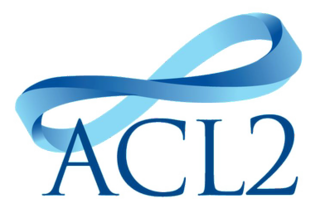Automated theorem proving is a subfield of automated reasoning and mathematical logic dealing with proving mathematical theorems by computer programs. Automated reasoning over mathematical proof was a major motivating factor for the development of computer science.
Knowledge representation and reasoning is the field of artificial intelligence (AI) dedicated to representing information about the world in a form that a computer system can use to solve complex tasks such as diagnosing a medical condition or having a dialog in a natural language. Knowledge representation incorporates findings from psychology about how humans solve problems and represent knowledge, in order to design formalisms that will make complex systems easier to design and build. Knowledge representation and reasoning also incorporates findings from logic to automate various kinds of reasoning.
In computer science, formal methods are mathematically rigorous techniques for the specification, development, analysis, and verification of software and hardware systems. The use of formal methods for software and hardware design is motivated by the expectation that, as in other engineering disciplines, performing appropriate mathematical analysis can contribute to the reliability and robustness of a design.

ACL2 is a software system consisting of a programming language, an extensible theory in a first-order logic, and an automated theorem prover. ACL2 is designed to support automated reasoning in inductive logical theories, mostly for software and hardware verification. The input language and implementation of ACL2 are written in Common Lisp. ACL2 is free and open-source software.
E is a high-performance theorem prover for full first-order logic with equality. It is based on the equational superposition calculus and uses a purely equational paradigm. It has been integrated into other theorem provers and it has been among the best-placed systems in several theorem proving competitions. E is developed by Stephan Schulz, originally in the Automated Reasoning Group at TU Munich, now at Baden-Württemberg Cooperative State University Stuttgart.
Paradox is a finite-domain model finder for pure first-order logic (FOL) with equality developed by Koen Lindström Claessen and Niklas Sörensson at the Chalmers University of Technology. It can a participate as part of an automated theorem proving system. The software is primarily written in the Haskell programming language. It is released under the terms of the GNU General Public License and is free.

In computer science and mathematical logic, a proof assistant or interactive theorem prover is a software tool to assist with the development of formal proofs by human–machine collaboration. This involves some sort of interactive proof editor, or other interface, with which a human can guide the search for proofs, the details of which are stored in, and some steps provided by, a computer.
In computer science, in particular in knowledge representation and reasoning and metalogic, the area of automated reasoning is dedicated to understanding different aspects of reasoning. The study of automated reasoning helps produce computer programs that allow computers to reason completely, or nearly completely, automatically. Although automated reasoning is considered a sub-field of artificial intelligence, it also has connections with theoretical computer science and philosophy.
The Association for Automated Reasoning (AAR) is a non-profit corporation that serves as an association of researchers working on automated theorem proving, automated reasoning, and related fields. It organizes the CADE and IJCAR conferences and publishes a roughly quarterly newsletter.
In the computer science fields of knowledge engineering and ontology, the Sigma knowledge engineering environment (SigmaKEE) is an open source computer program for the development of formal ontologies. It is designed for use with the Suggested Upper Merged Ontology. It originally included only the Vampire theorem prover as its core deductive inference engine, but now allows use of many other provers that have participated in the CASC/CADE competitions.
In computability theory and computational complexity theory, an undecidable problem is a decision problem for which it is proved to be impossible to construct an algorithm that always leads to a correct yes-or-no answer. The halting problem is an example: it can be proven that there is no algorithm that correctly determines whether an arbitrary program eventually halts when run.
There are a number of competitions and prizes to promote research in artificial intelligence.
SPASS is an automated theorem prover for first-order logic with equality developed at the Max Planck Institute for Computer Science and using the superposition calculus. The name originally stood for Synergetic Prover Augmenting Superposition with Sorts. The theorem-proving system is released under the FreeBSD license.

Geoff Sutcliffe is a US-based computer scientist working in the field of automated reasoning. He was born in the former British colony of Northern Rhodesia , grew up in South Africa, and earned his PhD in Australia. Sutcliffe currently works at the University of Miami, and is of both British and Australian nationality.
The CADE ATP System Competition (CASC) is an annual competition of fully automated theorem provers for classical logic
In information technology a reasoning system is a software system that generates conclusions from available knowledge using logical techniques such as deduction and induction. Reasoning systems play an important role in the implementation of artificial intelligence and knowledge-based systems.
Charles Gregory Nelson was an American computer scientist.
Lean is a proof assistant and a functional programming language. It is based on the calculus of constructions with inductive types. It is an open-source project hosted on GitHub. It was developed primarily by Leonardo de Moura while employed by Microsoft Research and now Amazon Web Services, and has had significant contributions from other coauthors and collaborators during its history. Development is currently supported by the non-profit Lean Focused Research Organization (FRO).
TPTP is a freely available collection of problems for automated theorem proving. It is used to evaluate the efficacy of automated reasoning algorithms. Problems are expressed in a simple text-based format for first order logic or higher-order logic. TPTP is used as the source of some problems in CASC.


